I know that many of you have already purchased my newest eBook from Amazon, but if you don’t have Kindle (or the Kindle app for a different device), I am happy to announce that The Re-Justification of God is now available on the following platforms:
- Google Play
- Apple iTunes
- Barnes & Noble
- Amazon
So if you haven’t bought The Re-Justification of God already, but want to get it for your Apple or Android device (or whatever else you have) feel free to get it from one of the platforms above.
And hey, if you have already bought and read the book, would you mind leaving a review of it on Amazon? (#AmazonAdLink) Go here to leave a review. Even 2-3 sentences would work. Thanks!


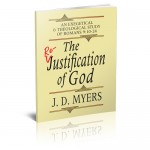



 Western theology has committed a terrible disservice to this imagery of a potter and clay by making it seem as if God is a deterministic puppet master up in heaven pulling the strings of people and nations down here on earth.
Western theology has committed a terrible disservice to this imagery of a potter and clay by making it seem as if God is a deterministic puppet master up in heaven pulling the strings of people and nations down here on earth.
 And what makes one vessel clean or unclean? As H. H. Rowley pointed out above, God allows humans to determine what kind of vessel they will be, and then He uses those who have made themselves vessels of dishonor.
And what makes one vessel clean or unclean? As H. H. Rowley pointed out above, God allows humans to determine what kind of vessel they will be, and then He uses those who have made themselves vessels of dishonor.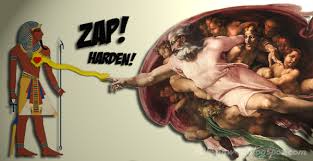 In Romans 9, Paul writes about the hardening of Pharaoh’s heart for the purposes of making God’s glory known. This seems rather harsh to some.
In Romans 9, Paul writes about the hardening of Pharaoh’s heart for the purposes of making God’s glory known. This seems rather harsh to some.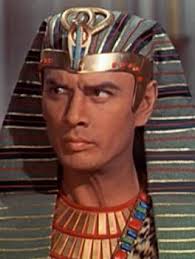 But in response to this, Calvinists argue back that although the text says that Pharaoh hardened his own heart before God hardened it, before Moses even went to speak to Pharaoh, God told Him that He planned to harden Pharaoh’s heart (Exod 4:21; 7:3).
But in response to this, Calvinists argue back that although the text says that Pharaoh hardened his own heart before God hardened it, before Moses even went to speak to Pharaoh, God told Him that He planned to harden Pharaoh’s heart (Exod 4:21; 7:3). The issue is not about who hardened Pharaoh’s heart first—though that is where most of the ink has been spilled—but rather about what it means for Pharaoh’s heart to be hardened.
The issue is not about who hardened Pharaoh’s heart first—though that is where most of the ink has been spilled—but rather about what it means for Pharaoh’s heart to be hardened.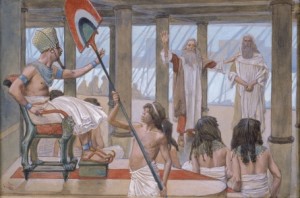 Pharaoh’s eternal destiny is not under discussion in Exodus or in Romans, and so Pharaoh’s heart can be hardened so that God’s purposes are achieved, while still leaving plenty of room for Pharaoh to believe in God’s promises and become one of God’s people.
Pharaoh’s eternal destiny is not under discussion in Exodus or in Romans, and so Pharaoh’s heart can be hardened so that God’s purposes are achieved, while still leaving plenty of room for Pharaoh to believe in God’s promises and become one of God’s people.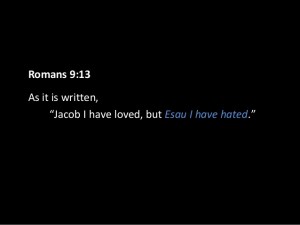 Paul writes a difficult statement in Romans 9:13:
Paul writes a difficult statement in Romans 9:13: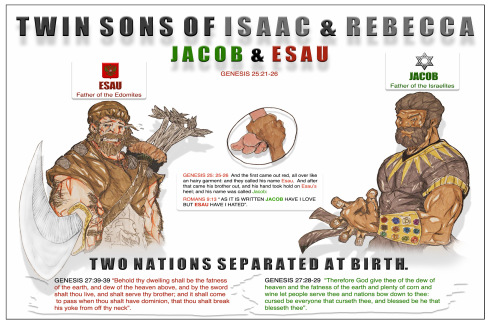
 How can we choose between the two views above? Does God hate Esau and Edom, or does He simply love Edom less than He loves Israel?
How can we choose between the two views above? Does God hate Esau and Edom, or does He simply love Edom less than He loves Israel?

